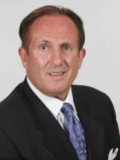
What was the biggest challenge your company faced in 2022 and how did you overcome it?
Steve Grosso, Auxilior Capital Partners: The rapid and unprecedented increase in interest rates and inflationary effects. The environment required disciplined asset/liability management and attention to ensuring a nimble process to react to market dynamics, include an active, more frequent evaluation of segment and transactional profitability.
David Lee, North Mill Equipment Finance: The rapidly rising interest rate environment was our biggest challenge. With seven Federal Reserve rate increases totaling 4.25% during 2022, our cost of funds, on a fully funded basis, increased from approximately 2.5% to nearly 7%. Given that a typical small-ticket approval is good for 60 days, our net interest margin on newly funded deals kept decreasing. Moreover, with supply chain disruptions, equipment was taking longer to deliver, causing borrowers to seek approval extensions at the original approved buy rate. Managing referral partner and borrower expectations became

increasingly difficult with our need to increase buy rates throughout the year. We were fortunate enough to fix our cost of borrowing with two securitizations with three-month prefund periods to lock in our cost of borrowing through year end, mitigating some of that net interest margin erosion.
Kyin Lok, Dext Capital: At Dext, we place importance on partnering with our manufacturers and customers to make financing affordable in light of a rising rate environment and continued supply chain delays. We offered rate locks and provided creative payment options to customers to help mitigate the increasing costs of acquiring and financing equipment.
Brian Slipka, Honour Capital: Most of our biggest issues in 2022 were about us controlling our controllables; in other words, internal challenges with being a two-year-old company.

How has your approach to raising capital changed over the last year?
Grosso: We have a strong, diversified capital base and we have stayed disciplined to our long-term plan.
Lee: We have the good fortune of having a strong and well capitalized equity partner, InterVest Capital Partners, who has been highly supportive of our growth capital needs. In turn, our bank lenders, led by Truist and Deutsche Bank, and securitization bond investors have also been highly supportive. Consequently, we have not needed to make any changes to our capital raise strategy.
Lok: We have a more diverse and flexible approach to financing that allows us to pivot to the most efficient capital source whether that be asset-backed markets, bank syndication or private funds. As a direct lender for our own balance sheet and in anticipation of a choppy interest rate environment, we decided to take on excess capital in order to always be ready to be a supportive partner for our manufacturers and customers.

Slipka: At Honour Capital, we are taking an approach of valuing relationships over many of the other normal contemplations. We believe this will help us no matter how the economic uncertainties play out.
Do you see an impending recession as a threat or an opportunity? Why?
Grosso: Our industry, specifically equipment finance and leasing, has performed better than other asset classes in downturns. Notwithstanding the economy and its impact on specific segments, our view is there are always opportunities in economic downturns or recessionary cycles.
Lee: From our perspective, an impending recession is both a threat and an opportunity. We certainly do not look forward to portfolio stress and decreased earnings in the short term; however, our financial strength and conservative leverage, we believe, position us well to gain market share at higher yields for better quality borrowers as other lenders become more cautious. Moreover, we will be opportunistic in acquiring portfolios and other lenders when such opportunities arise.
Lok: As an independent, recessions are often opportunities to be nimble, pivot to areas that are underserved and lean into opportunities to take market share from competitors.
Slipka: We see an impending recession as an opportunity because decision makers start choosing smart money over cheap money; in other words, decision makers choose to work with people they trust.
Looking outside the equipment finance industry, where do you see your major sources of competition? Are fintechs, private equity firms and/or credit card providers taking market share from the industry?
Lee: We have not seen any major encroachments into the small-ticket equipment space from outside our industry. Nearly all of the growth over the past few years has come from strong independents, such as Amur, Pawnee and ourselves. We have seen attempted entries by fintechs, such as LendingTree, Currency, OnDeck, etc., but nobody, to date, has been successful in penetrating the unique characteristics of small-ticket equipment finance using artificial intelligence, machine learning and other software-based credit adjudication and lead generation platforms that may have been successful in consumer or unsecured small business working capital lending. The heterogeneous variability of equipment, vendors and dealers still makes equipment finance a highly consultative process, as evidenced by the prosperous and growing equipment finance broker market and the demand for sales reps.
Lok: In the markets we serve, banks tend to be our biggest competitors but are slowly being outflanked by independents who offer a more tech-enabled approach to the financing process.
Slipka: I think all of the above are major sources of competition. But all of them also present opportunities for us to separate ourselves through trust and relationships and stewardship of our — and their — mission.
How are recently introduced regulations, such as the California disclosure laws, impacting your business?
Grosso: The regulatory environment and its dynamics have added both operational costs and compliance risk. Certainly, these changes must be incorporated into core governance and risk management practices. Bottom line: Like anything else, it must be factored into the costs of doing business.
Lee: Aside from the short-term flurry of compliance with the newly enacted regulations, we have seen virtually no impact on our business.
Lok: We take pride in being transparent in our financing approach to customers. The adjustment for the new disclosure laws was not a big impact to our business due to our technology infrastructure that allows us to implement changes timely and seamlessly for our customers.
Slipka: I think there will always be these sorts of distractions. We just need to focus on what we can control and how we react and adjust.
How are you approaching investments in your technology infrastructure today?
Grosso: New technologies and their utility potential are a very exciting part of our industry today. We at Auxilior embrace these incredible opportunities and fully envision an ever-increasing frictionless and immersive customer experience through the development and adoption of technological tools and solutions.
Lee: We continue to invest millions per annum on technology with a philosophy of building tools to make our team more efficient, allow them to make more informed analytical decisions, reduce the probability of being defrauded, enhance our borrower experience and, most importantly, empower our referral partners.
Lok: Technology investments continue to be a requirement for Dext to remain a technology-forward company. We are regularly rolling out new enhancements to DART (Dext Access Real Time), our proprietary online solution for customer and partner financing needs.
Slipka: We are approaching investments in our technology infrastructure proactively. It will be critical for Honour Capital to improve and invest –— kaizen (constant improvement).
What is your outlook for equipment finance in the year ahead?
Grosso: My nearly four decades of experience in this industry has only heightened my enthusiasm for what lies ahead. Whether we enter a sharp and challenging downturn or a “soft landing,” our industry has proven to be resilient and resourceful to respond and flourish over its history.
Lee: In a nutshell, we are cautiously optimistic. We have seen a meaningful slowdown in demand since Jan. 1 for new financing, particularly in trucking and residential construction. We do, however, see robust demand in our medical and franchise segments, both of which have become very meaningful portions of our portfolio.
We also are seeing a rate gap between banks and independents whereby banks have not raised their buy rates at the same velocity as benchmark rates have risen over the past year, making independents comparatively more expensive for A- and B+ credits. We expect that gap to close during the year.
We also expect delinquencies to continue to rise with the commensurate increase in repossessions and liquidations, putting stress on asset prices.
Lok: My outlook for the industry is cautiously optimistic. While some industries will feel the impact of the recession ahead, many of the industries we target have often demonstrated a greater resiliency. As industry veterans and experts in the industries we have a presence in, we feel confident in our ability to navigate the rain clouds ahead and position ourselves for continued, solid growth. The last couple years have tested our industry’s resolve and I congratulate those who continue to make more right choices than wrong ones in the face of these daunting challenges.
Slipka: I believe we will see a return to custom low-payment scenarios that aim to mitigate operating risk for our clients.
No categories available
No tags available